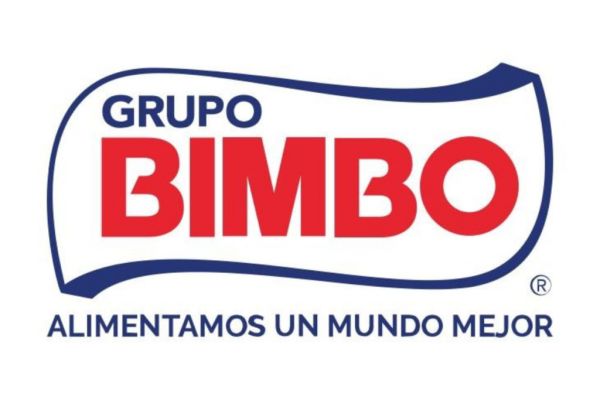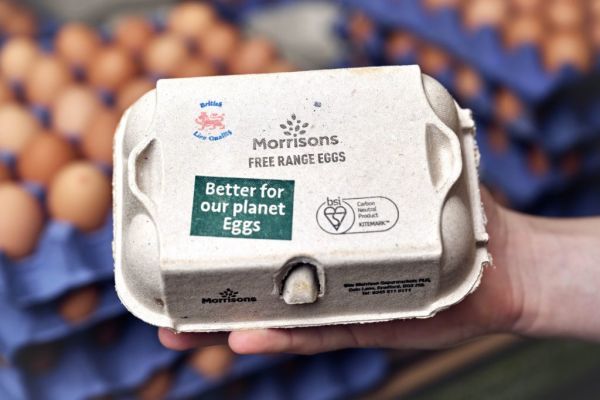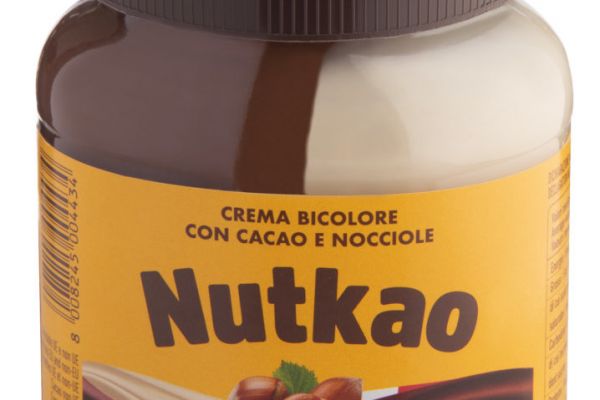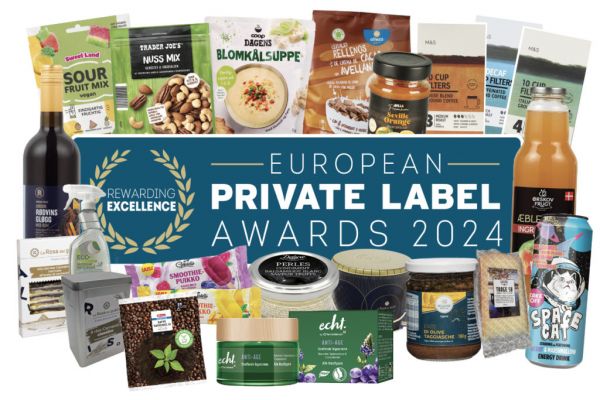MMM, Selection, Gourmet, Exclusive, Select, Quality, Fine, Luxury, Exclusive… supermarket shelves are filling up with new and improved premium private label products. Ben Webb feasts his eyes on the brand new menus coming to a supermarket near you…
When a major supermarket chain launches an economy private label range the grocery industry shrugs its shoulders and asks one question: what’s the price? The consumer, who expects a lot of simple white packaging – Waitrose essentials, is a fine example – asks exactly the same question and waits for a heart-warming affect on the weekly budget.
But when the industry hears about a new premium private label range, it gets very curious. There are so many questions to ask: How good is it? Is the packaging revolutionary? Will it extend their brand? Is it good enough to beat the national brands? Is it good enough to suck in new customers and grow market share? Is it, supermarket executives ask nervously, better than ours?
The consumer also starts to ask a host of more sophisticated questions. Just how good is it? Is it good enough to replace a restaurant meal and save the bill? Is it sufficiently superior to the discount and standard private label brands to merit the higher price? Will it save me time cooking and still satisfy the family? Is it good enough – if I disguise it – for a dinner party?
It is a very interesting time in the European supermarket private label premiumship. As the worst of the recession becomes an unwelcome part of our shared history, there are signs the consumer is opening their purses a little wider and trading up to higher quality options. And supermarket chains are very keen to boost their sales of premium private labels.
Trading up, of course, means higher margins. Tesco's chief executive Terry Leahy, basking in the glow of his Christmas takings, revealed a quarter of all festive season shopping baskets contained a ‘Finest’ Product’. "We've delivered a very strong performance over the Christmas and New Year period," he declared.
Edward Garner of TNS Worldpanel confirmed such green shoots were not just a figment of Leahy's imagination. Other retailers were prospering, with many showing good sales of premium private labels, suggesting an end to recessionary buying behaviour. “We are now seeing a growth in Premium ranges,” he said.
Tried and tested labels like Tesco’s finest and Sainsbury’s Taste the Difference have been around a while, but there is new momentum building towards the development of enhanced private label offerings. Across
Europe, new or improved products are hitting the shelves. Auchon’s ‘MMM’ and Migros’ ‘Selection’ are wowing critics. Launched last autumn, Rewe’s ‘Feine Welt’ looks fabulous on the shelf. Ahold’s ‘Excellent’ is excelling as part of the company’s well-hone private label hierarchy. The new ‘real, - SELECTION, is another new premium range turning heads.
A glance at the names alone reveals the battle for the discerning consumer is on.Fine(st) is the choice of the marketing men at Tesco, Coles in Australia, and Co-op in Switzerland. Select(ion) is the vital word chosen by the gurus at Migros, Carrefour, Real and both Safeway and Kroger in the US.
As Joanne Denney-Finch, Chief Executive, IGD said: “In such a vibrant marketplace, in which new shopper loyalties are emerging, retailers and food manufacturers are responding very rapidly to the challenges presented by the recession. They are each vying to excel at delivering value – and the most effective are reaping the rewards.”
It could be a truly fascinating decade of innovation as supermarket chains go head-to-head in a brazen beauty parade as they battle to produce ever more sophisticated premium private label products. IGD’s research conducted with shoppers in France, Germany, Spain & UK gives an insight into what is happening. Investment in the quality and variety of supermarket own-label is paying off as almost a third (31%) of shoppers in these markets are buying more own-label.
Big questions spring to mind. What will be the price strategy for premium private labels compared to the brand leaders? Is it possible that we will soon be talking about the rise of super-premium private labels? What will happen to the variety of brands in the market? The balance of power between the big brands and private label that has stood for many years has shifted, it seems, and is set to shift further still.
Premium private label and the crunch
In the glorious years BC – Before the Crunch – premium private label was going steady, especially in the UK where Sainsbury’s Taste the Difference and Tesco’s Finest had both established their place as firm family favourites. However, when it came to quality and innovation, new packaging ideas and great design, the brands remained superior.
At the opposite end of the market, the economy private labels were pottering along quite happily. In the years AD – After the Depression – however, the focus was on discounting and these economy range private labels started to flourish. More than 30 Million people are now opting for supermarket own labels in an attempt to save money, according to a new report by www.uswitch.com.
Edeka’s CEO Markus Mosa reported sales increases of 30 to 40 percent for its economy private label products and warned brand manufactures they have to lower their prices if they want to stay competitive. Some 73 per cent of consumers are buying own brands compared with 25 percent last year. A further 74 percent of consumers use coupons, compared with only 26 percent last year.
Price is clearly now vital, but as the first shock waves from the crunch start to subside, it seems as though value and not just price is becoming part of the equation. In other words, consumers will pay more as long as they know they are getting a good deal. Such consumer behaviour is perfect for supermarket chains with a superb premium label proposition.
A Verdict Research report on major retailers’ private label relaunches during the economic downturn revealed that although the rapid growth seen by private label is coming to and end, branded FMCG are set for a rough path ahead. Consumers’ loyalty shift from branded to private label lines is permanent and the new battle for market share will be contested between retailers and within existing range architectures. Across the EU, private label will emerge as one of the winners.
Here is an interesting question: as grocers plan their new premium private label offerings, will they be ambitious enough to take on the brands and try to surpass them?
Why premium private label?
The desire to expand premium private label in the present economic climate is entirely logical. Grocers love to hook customers with value and then get them to trade up. What’s the margin on a €0.45 tin of economy private label plum tomatoes? What’s the margin on €1.00 of premium private label finest?
Having said that, there is clearly a benefit to attracting spend on private label at all price points – supermarkets want a balance of sales at discount, standard and premium. The mantra at Sainsburys is “good, better, best” when it comes to its own brands. It’s not hard to imagine Justin King striding the aisles of his kingdom for chinks in his private label armour. If it’s there, he’ll want to fill it.
In the recession, supermarkets lured in new customers of own label by relaunching their products and often cutting prices or offering promotions. “In September 2008, we relaunched our standard own-brand range, which accounts for over 40 per cent of sales, with our ‘Switch and Save’ campaign,” King says. “This offered savings of at least 20 per cent when selecting Sainsbury’s equivalent product over the leading brand.”
The quality of the ‘good’ product is very important. If it is good enough, then the shopper who has switched from the brands may stick with it. The supermarket can start to build trust in the private label proposition. The next stage in the process is to encourage the customer to trade up to the ‘better’ and the ‘best’ products. It’s no secret.
“Customers have increasingly looked to own-brand products during the year to help them save money and they have unrivalled trust in Sainsbury’s own-brand products,” Justin King told the rapt audience at the Sainsbury’s AGM.
“’Taste the difference’ remains an important part of the product offer. In the current economic environment the range allows ‘savvy shoppers’ to make conscious decisions about the quality they want for different ingredients and meal occasions. In particular, ‘Taste the difference’ ready meals are fulfilling a trend towards customers treating themselves at home rather than eating out or buying more expensive takeaways to eat at home.”
Suddenly, premium private label goods are not just about taking the fight to the big brands with their huge development budgets and marketing resources, but our very lifestyles. Don’t pop down to the local restaurant. Treat yourself at home with a premium ready-meal. Private label strategies are so sophisticated they allow supermarkets to talk to their customers in an increasingly effective and strategic way.
Sainsbury’s ‘Feed your Family for a Fiver’ campaign used a mix of ‘Taste the difference’, standard and ‘basics’ products in meal ideas. “It helps customers manage tighter budgets as they make their own choices to substitute individual ingredients to get significantly below the £5 threshold or add more premium products if they wish,” King explained.
All the time, the level of trust – reliance, even – between supermarket and customer is being increased. Adding more premium products to the portfolio has enhanced opportunities for strategic advertising and marketing. A recent campaign for Tesco’s Finest Champagne in the build up to Valentine’s Day illustrates the idea. The quality bottle of bubbly was a snip at €24.99 [check] but, and here’s the interesting part, it was only available in certain stores. In other words, with all the vital demographic data and purchasing trends revealed by the Tesco Card, premium products do not have to be stocked universally. They only need to appear on the shelves in areas with consumers prosperous enough to make it worthwhile.
The premium label ranges
Rewe has launched a premium range called Rewe Feine Welt – or Fine World – to boost its private label penetration from 20% in its full-range grocery stores in Germany to 30%. It includes about 100 fresh and ambient products sourced from around the world and is priced around 15 per cent lower than branded goods of comparable quality. In complements the economy line ja!, the standard store brand REWE and the organics offer Rewe Bio. More products are inevitable. Martin Brüening, Rewe’s head of corporate communications, says: "’REWE Feine Welt’ was launched last year very successfully and will be expanded to about 115 products in 2010.”
Similarly, Real launched ‘real, - SELECTION’ in December 2008 with 50 different product lines – such as chocolate, potatoes, cold meat and vinegar – and plans to extend it to some 200. The most successful product is ‘Original Swiss Dark Chocolate’. “One important aspect of our strategy is the placement of ‘real,- SELECTION’ products beside comparable premium branded goods,” says Dirk Koenigsfeld, division manager own brand management.
“A premium brand like real,- SELECTION is not supposed to be a "mass-market" brand, but sales figures show real,- SELECTION is increasing in popularity. Therefore we expect a positive development for the future.”
Packaging, he adds, is vital. “A high-value packaging is essential for establishing a successful premium private label. The relation between design, packaging and product quality has to fulfil customer's expectations towards a premium brand.”
Migros Selection
Across the border in
Switzerland, both the name and story are the same where the Migros Selection brand is doing well, with the desserts proving a stand-out performer. Monika Weibel says: “The packaging is very important - it must display its own uniqueness and indicate at first glance, the quality and value of a product. The Sélection range promises our customers (not only our core values of freshness, value for money, sustainability, and Swissness) interesting innovations and novelties,.
“Customers expect good value at Migros, a large and varied selection of products in different price ranges. Selection products that are the most expensive, we tend to run as a niche product. Despite the economic crisis the sale of these products has met our expectations. With the demand for these products generally down, the customer tends to choose them for special occasions especially on holidays.”
It is interesting to note that organic products are also standing up. Weibel adds: “Despite the recession, the organic label products are in high demand despite the fact that they are 30 to 40% more expensive than conventional products,” she says. “In our annual customer survey, we found that many customers want an enlargement of the choice of organic food - a demand we intend to meet.
Rise of premiums hits restaurants
The timing is also ideal as in the economic climate Rewe’s customers are looking to eat at home more – cutting expenditure, but not quality. “Recession seems to enforce a general tendancy towards cocooning,” Brüening explains. “Customers rather tend to stay at home than to go out. So it’s important for retailers to be able to offer a premium private label particularly in times of recession. Those premium private labels enforce the entire brand image of the retailer. People invite friends in order to cook together and to enjoy something special: REWE Feine Welt to soothe their souls.”
Bad news for restaurant owners has been a boon to purveryors of premium private label. Meike ter Braak, Albert Heijn’s brand and marketing manager for private label, says the AH Excellent brand, which is pitched above the standard Huismark brand, is faring well. “We have seen some general trading down in the current economic climate,” she says. “On the other hand, with fewer people eating out that means they may prefer to buy an “Excellent” product to re-create that ‘eating out’ feeling.”
Private label architecture
When Superquinn launched SQ, a range of Superior Quality food, it wanted to product food that was "unbeatable among supermarkets for taste and quality". After an initial investment of more than half a million euros, the first 100 lines appeared in neat and effective packaging. It was the first step in Superquinn's product development strategy to offer an extensive range of food products to meet every taste and budget.
Bruce Langlands, Head of Product Development at Superquinn, said: “Our aim was to develop a top range of products for all stores, without compromising on quality. We tasted over 400 different recipes and products before choosing the select 100 that we are launching. The SQ Collection represents a badge of quality for these products where we've gone that extra mile to ensure taste and provenance of the ingredients is unrivalled and we have worked very closely with our suppliers to develop recipes that consistently reach this high standard."
SQ is a success as Superquinn claimed 22 titles at the 2009 ‘Great Taste Awards,’ in
London, the Oscars of the food industry. It took home five 3 star gold awards, the highest level of prize any producer can aspire to. The SQ Ultimate Chocolate ice-cream produced in Fermoy, Co. Cork and SQ Blackcurrant Preserve which is produced by a family run business based in Offaly were very highly praised. .
The “good, better, best” hierarchy of private labels mentioned by Sainsbury’s Justin King is becoming the norm. "Selection", the gourmet line of Migros, is expanding all the time. Monika Weibel, from the Migros corporate communications department, says: “We have a clear brand strategy. Discount Products (M-Budget), product pricing in the mid-price range (M-Classic) and new products in an upmarket (Migros Premium: from mid-year) as well as products in the upper price range (Selection, the gourmet line).
The foreign brands make up only about 5% of the total inventory.”
Offering a private label at three price points also boosts loyalty. “Premium private labels strengthen customer loyalty,” Brüening says. “Many customers who appreciate "REWE Feine Welt" products are also interested in other private labels like REWE quality label or REWEbio. On the other hand, customers who are already convinced of REWE quality label and REWEbio also buy REWE Feine Welt products - because they already trust REWE's private labels.”
A striking and admired premium private label range can speak volumes for a brand. A glitzy advertising campaign showing off superb products enhances all aspects of a supermarket’s proposition. Consumers will find it more attractive which builds loyalty and trust. Brüening adds: “REWE Feine Welt" serves as differentiation and helps to create an emotional relationship between the customers and REWE's retail outlets as well as the REWE brand.
Battle with the Brands
Will the premium private labels ever surpass the brands. The answer, at present, is clear. Monika Weibel from Migros says: “When we speak of Selection - then no.
Brands also have a number of shopper trends in their favour. Almost half (49%) of French shoppers say that a major strength of brands is their reliable "taste and quality", compared to over a third (37%) of Spanish shoppers. Some 27% of shoppers in the
UK particularly favour brands because they have “grown up” with them - the highest figure compared to its European counterparts and no surprise as strong heritage has become an important attribute for UK shoppers
Will premium private label ever beat the main brands? Real’s Dirk Koenigsfeld says: It is not our intention to replace brand products with real,- SELECTION. But with real,- QUALITY as well as with real,- SELECTION we used the chance to replace ineffective B- or C-brands. Furthermore our own-brand products are used to distinctive from our competitors. They also have a positive advertising effect, when a lot of products with the company's logo are present in customer's fridge.
REWE’s Brüening says: “Private labels are self-contained brands which shape today's picture of REWE essentially. We are not able to predict if main brands will be beaten by premium private labels in the future. As a matter of fact, the unaided awareness of REWE's private brand "ja!" is at 68%.It is mentioned more often spontaneously than some other main brand. Nonetheless, the main brands will definitely not dissolve.”
Box – The Supplier’s tale
The rise of premium private label is an opportunity for existing suppliers to rethink their offerings and for a whole new raft of suppliers to expand their client base. Cranswick, for example, the premium pork product supplier, enjoyed a surge in third-quarter sales. The company supplies the meat to Britain's four biggest supermarkets, which use it for their own label lines. As the worst memories of the recession recede, consumers seem to have started trading up to the grocers' premium own-label lines, such as Sainsbury's Taste the Difference, which Cranswick supplies. Total sales at Cranswick soared by 31 per cent to £200m in the three months to 31 December. Sales were boosted by the acquisition of CCF Norfolk in June 2009 last year, but the company still boasted an underlying growth of 17 per cent. You know success is in the air when TV celebrity chef Jamie Oliver gets involved and he has signed a joint venture with Cranswick to supply him with all the meat for his own range of fresh pork joints, marinated ribs, bacon and Italian charcuterie.














